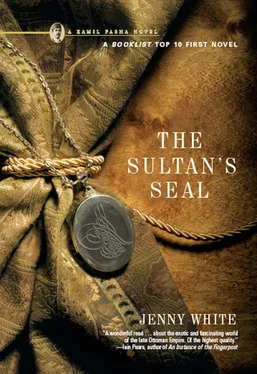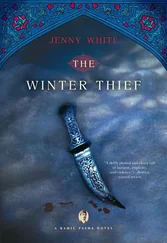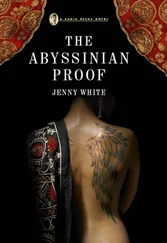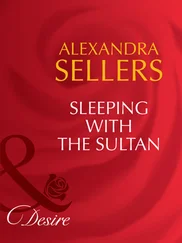Jenny White - The Sultan's seal
Здесь есть возможность читать онлайн «Jenny White - The Sultan's seal» весь текст электронной книги совершенно бесплатно (целиком полную версию без сокращений). В некоторых случаях можно слушать аудио, скачать через торрент в формате fb2 и присутствует краткое содержание. Жанр: Исторический детектив, на английском языке. Описание произведения, (предисловие) а так же отзывы посетителей доступны на портале библиотеки ЛибКат.
- Название:The Sultan's seal
- Автор:
- Жанр:
- Год:неизвестен
- ISBN:нет данных
- Рейтинг книги:5 / 5. Голосов: 1
-
Избранное:Добавить в избранное
- Отзывы:
-
Ваша оценка:
- 100
- 1
- 2
- 3
- 4
- 5
The Sultan's seal: краткое содержание, описание и аннотация
Предлагаем к чтению аннотацию, описание, краткое содержание или предисловие (зависит от того, что написал сам автор книги «The Sultan's seal»). Если вы не нашли необходимую информацию о книге — напишите в комментариях, мы постараемся отыскать её.
The Sultan's seal — читать онлайн бесплатно полную книгу (весь текст) целиком
Ниже представлен текст книги, разбитый по страницам. Система сохранения места последней прочитанной страницы, позволяет с удобством читать онлайн бесплатно книгу «The Sultan's seal», без необходимости каждый раз заново искать на чём Вы остановились. Поставьте закладку, и сможете в любой момент перейти на страницу, на которой закончили чтение.
Интервал:
Закладка:
“I can’t imagine it has anything to do with Ismail Hodja,” Kamil responds firmly, his eyes following the cones of light as they descend from the dome and pierce the body on the belly stone. He is distressed by how quickly the surgeon accepted a link between the two murders. “The hodja’s reputation is impeccable.”
And there was no one else at his house who would come into question. The details in Hannah Simmons’s file were jostling at the gates of Kamil’s memory. The hodja’s sister was a recluse, his niece a mere child at the time. There were only a few servants; not a large household.
“Anyway, the body was found in the forest behind his house, near the road, I believe. So it could have been anyone. Still,” he muses aloud, “I wonder whether it would be worthwhile to talk to the hodja or his niece.”
Michel doesn’t answer. Kamil turns to find him still holding the pendant and staring intently at the body.
Michel turns and asks in a carefully neutral voice, “Do you want me to wrap this up?” He indicates the pendant in his hand.
“The cross and bracelet too. I’ll take them with me.” Pointing his chin at the body, “We don’t even know who the woman is. She appears to be foreign, so I’ll begin with the embassies.”
Michel hands him the small bundle. He lays his cloak over the cold belly stone, sits on it, and takes out his sketching materials.
“But first I’ll go home to change,” Kamil adds companiably.
Michel doesn’t look up, but begins drawing the body.
Kamil watches Michel’s head bowed over the paper, fascinated by the creation emerging from beneath his stick of charcoal. He reflects about how little he knows of Michel’s personal life, other than that he is unmarried and lives with his widowed mother in the Jewish quarter of Galata, and the story of their shared history. They spend time together in coffeehouses and clubs discussing everything under the sun, but Michel never opens to Kamil the private book of his life.
He and Michel attended the same school and knew each other by sight, but belonged to different circles. Michel, whose father had been a dealer in semiprecious stones, won a scholarship to attend the prestigious imperial school at Galata Saray. Children of wealthy Muslims, Jews, Armenians, Greeks, and other sons of the far-flung empire bowed their heads together over texts in history, logic, science, economy, international law, Greek, Latin, and, of course, Ottoman, that convolution of Persian, Arabic, and Turkish. It was not social class, religion, or language that separated Michel and Kamil in school, but the nature of their interests.
Soon after becoming magistrate, while Kamil was walking up the narrow streets toward his office, a man got up from a stool outside a coffeehouse and approached him. Kamil recognized the flamboyant colors of his old schoolmate’s clothing and his wrestler’s glide. That evening, they sat together in the coffeehouse and, over narghiles of apple-cured tobacco, exchanged news of their activities since graduation. Michel was finishing his training in surgery at the Imperial School of Medicine. Kamil was among the young men chosen for training in France and England as magistrates and judges in the newly introduced European-style secular courts that had shouldered aside the religious courts of the kadi judges. Michel had volunteered his services to Kamil, who eventually sponsored his appointment as police surgeon. Michel’s intimate knowledge of the neighborhood had helped Kamil solve several cases. Michel also introduced him to the Grand Bazaar, a city of tiny shops all under one roof, surrounded by a warren of workshops-hundreds of establishments, some no bigger than a man’s reach, owned by men of all the empire’s faiths. Michel’s father and two generations before him had been merchants there.
Kamil pauses under the arched doorway leading out of the hamam, the polite formula of parting dying on his lips, unwilling to intrude on Michel’s concentration.
Kamil turns and makes his way through the echoing antechambers. He stops at a basin, turns the metal cock all the way open, and rubs his hands together under the cold water. There is no soap, but he feels less polluted. He shakes the excess water off his hands and strides out of the gloom. At the threshold, he is momentarily felled by the brightness of the world.
His hands still chilled, he mounts his horse and winds his way up past the village and into the forest. Here, the morning sun filters softly through the trees. Birds chirrup madly; the shrill calls of young children fall through the air like knives.
When he reaches the road beyond the forest, he spurs his horse to a gallop.
2
Every morning, my dayi, Ismail Hodja, put a soft-boiled egg in his mouth and sat without chewing, eyes lowered, until the egg was gone. It was not until I was in my twenties that I understood. Anticipation is the brilliant goad to pleasure. But at the time, I was only a child of nine, transfixed at the breakfast table. Ismail Dayi always ate the same breakfast: black tea in a tulip-shaped glass, one slice of white franjala bread, a handful of black, brine-soaked olives, a chunk of goat’s cheese, a small bowl of yoghurt, and a glass of whey. In that order. Then the egg, which lay peeled and shivering in a cobalt blue saucer, blue-white and glinting with moisture. Its broad end was slightly raised, the yolk casting a sickle-moon shadow. My uncle ate his breakfast slowly and methodically, without speaking. Then he reached for the egg with two long, slim fingers. His fingers indented the pudgy waistline of the egg as he lifted it, quivering, to his mouth. He deposited it carefully on his tongue, taking care not to brush it with his teeth. Then he closed his lips around the egg and, eyes lowered, sat until it had magically disappeared. I saw him neither chew nor swallow.
During this time, Mama was in the kitchen, rinsing the plates and topping up the double boiler in which the tea brewed. We did not have live-in servants in Ismail Dayi’s house and Mama herself prepared our breakfast before the cook and her assistant arrived for the day. When I would ask Mama, “Why does Ismail Dayi keep the egg in his mouth?” she would look away and busy herself.
“I don’t know what you mean. Don’t ask silly questions, Jaanan. Drink your tea.”
Ismail was my mother’s brother. We lived in his house because Papa had taken a second wife, and Mama had moved out of our big house in Nishantashou, where Papa lived now with Aunt Hüsnü.
Ismail Dayi’s house was two stories high, its smooth wooden flanks painted rust red. It was set in a garden on the shore of the Bosphorus just outside the village of Chamyeri. Behind the house, a forest of plane trees, cypresses, and oaks painted the steep hills. The house was set on the narrow stage of the shore in front of this towering green backdrop. Before us, the broad band of the Bosphorus glittered with light, its currents twining and coiling like a living creature. Sometimes the water threw up arcs of dolphins trailing aquatic rainbows. The colors of the water changed constantly in response to forces I still do not understand, from oily black to bottle green and, on rare magical days, to a translucent pastel green so clear that I felt if I looked long enough, I would see the bottom. On days of such clarity, I lay on the warm stones of the shore wall and let my head hang over the edge, looking for quicksilver sprays of anchovies. Below them I imagined the cool, heavy bodies of bigger fish turning and slipping through the liquid light. The shifting sands beneath uncovered the pale moon faces of dead princesses, eyes closed, lips slightly parted in fruitless protests against their fate. The gold thread of their brocaded gowns weighed them down. Their delicate hands lay, palms up, pinned to the sand by enormous emerald and diamond rings. Their black hair streamed in the current.
Читать дальшеИнтервал:
Закладка:
Похожие книги на «The Sultan's seal»
Представляем Вашему вниманию похожие книги на «The Sultan's seal» списком для выбора. Мы отобрали схожую по названию и смыслу литературу в надежде предоставить читателям больше вариантов отыскать новые, интересные, ещё непрочитанные произведения.
Обсуждение, отзывы о книге «The Sultan's seal» и просто собственные мнения читателей. Оставьте ваши комментарии, напишите, что Вы думаете о произведении, его смысле или главных героях. Укажите что конкретно понравилось, а что нет, и почему Вы так считаете.












